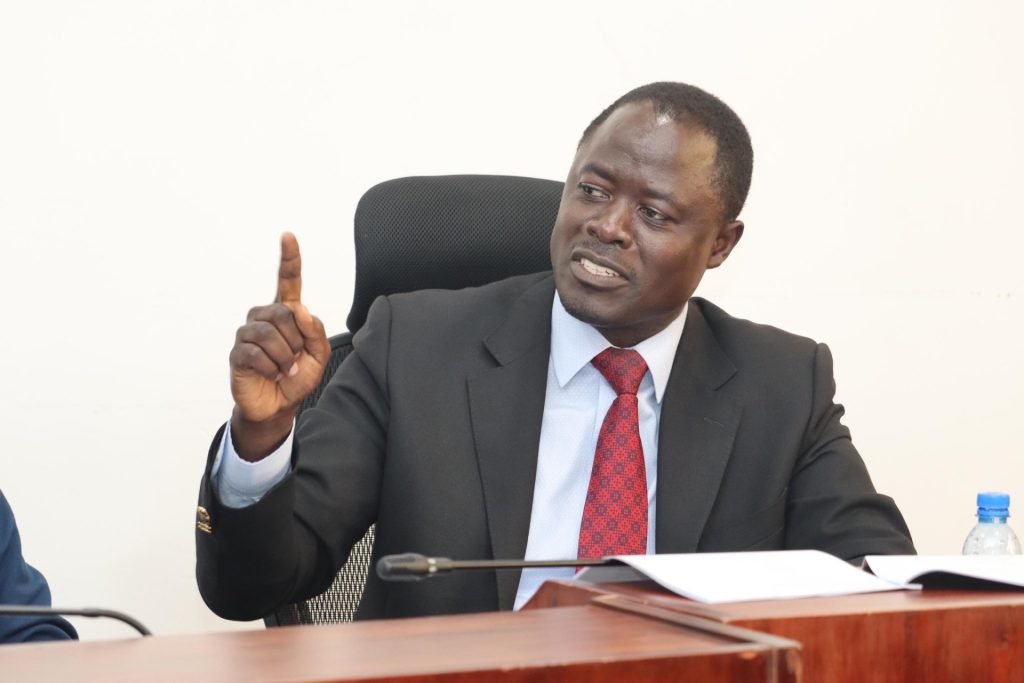The simmering tension between the national and county governments has spilt into the open this week, as Homa Bay Town MP Peter Kaluma delivered a sharp rebuke to Kisumu Governor Prof Anyang Nyong’o, challenging his criticism of President William Ruto’s administration and its handling of devolution.
In a post shared on the social media platform X on Wednesday, April 23, 2025, Kaluma accused county chiefs of mismanaging public resources, arguing that many governors had failed to deliver tangible development despite receiving trillions of shillings since devolution was introduced in 2010.
Kaluma, a vocal supporter of President Ruto and an advocate of parliamentary oversight, challenged Nyong’o and other governors to account for the resources already disbursed to counties.
He suggested that persistent underdevelopment in many regions had more to do with local mismanagement than with central government interference.
His remarks reflect growing frustrations within the national legislature over what some see as underwhelming returns on devolved investments, even as governors demand more control over key functions.
“With no single road to show for the trillions Counties have been receiving, but super-rich governors in the face of increased poverty among people, the governors can’t win this prof,” Kaluma wrote, in a direct response to Nyong’o’s recent public statement.

The clash comes amid an ongoing dispute over control of infrastructure funding, particularly the role of national road agencies such as the Kenya Urban Roads Authority (KURA) and the Kenya Rural Roads Authority (KeRRA) — bodies that county leaders argue duplicate devolved functions.
Nyong’o’s broadside against the state
On Tuesday, April 22, 2025, Governor Nyong’o issued a strongly-worded statement accusing the Ruto-led administration of undermining devolution, the hallmark of Kenya’s 2010 Constitution that decentralised power and resources to the country’s 47 counties.
“If the national government is truly committed to implementing devolution, then KURA and KeRRA need not exist,” Nyong’o stated, adding that counties were better placed to manage local infrastructure development.
Nyong’o, a respected scholar and long-time political strategist, also cited the health sector as evidence of counties’ competence, contrasting what he called effective county-led services with the central government’s ongoing challenges in managing national referral hospitals.
“The counties manage health effectively and efficiently. The national government cannot even manage Kenyatta National Hospital,” he argued, warning that the centralisation of power signalled a regression to pre-devolution times of the Nyayo era.
Nyong’o framed his criticism as part of a broader ideological concern, claiming that the current administration views the 2010 Constitution as a hindrance to its economic and political agenda.
“The Ruto regime has decided to go back to pre-devolution times… The 2010 constitution is a hindrance to its primitive accumulation schemes,” the governor said.
He urged the Council of Governors (CoG) and other democratic actors to resist what he called an assault on the achievements of the Second Liberation.
Growing rift over constitutional mandates

The back-and-forth highlights a growing constitutional and political debate over the balance of power between the two levels of government.
While devolution remains widely supported, disputes over who controls what – and how resources are distributed – continue to strain relations between Nairobi and the counties.
The government has not officially responded to Nyong’o’s criticism, but the national executive seemingly views some governors’ demands as politically charged and not always grounded in fiscal accountability.
As the country approaches the halfway point of President Ruto’s first term, the delicate relationship between central and devolved governments will remain a key test, not just of political tolerance but of the resilience of Kenya’s post-2010 constitutional order.
Martin Oduor
The alchemist of literary works – a master wordsmith with a proven record of transforming the raw materials of language into a rich tapestry of emotion, thought, and imagination.
View all posts by Martin Oduor